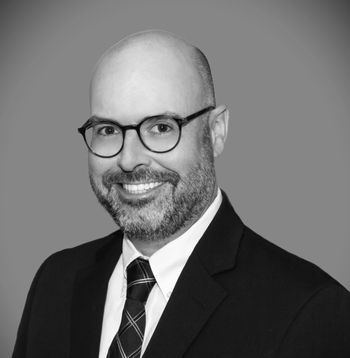PROF ELLWANGER: Why I won my plagiarism contest
I knew that the people saying that 'everybody plagiarizes' knew that it was untrue. And that offended me.
After it came to light that Claudine Gay, then-President of Harvard University, had routinely plagiarized in her scholarly work, I pledged a reward of up to $1,000 for anyone who could document similar plagiarism in my own work. The contest lasted a month. I’m now pleased to announce that I didn’t pay out a dime. Of course, I knew all along that I wouldn’t: it’s just not that difficult to come up with your own ideas.
After Gay’s resignation, a number of professors and commentators jumped to her defense in the public discourse. Some said her work was scrutinized just because she was a black woman in academia. Others claimed that the offenses didn’t rise to the level of plagiarism. But as a professor, the excuse that bothered me most was the assertion that what Gay did was common practice in higher education – as if all professors copy passages from other scholars’ publications and use them in their own work without attribution. Nonsense. All of it.
Anyone who reaches the academic heights that Gay did has been drilled on the importance of academic honesty and proper citation of sources since the freshman year of college (and probably before that). I knew that it wasn’t true that “everybody plagiarizes.” I knew that the people saying that “everybody plagiarizes” also knew that it was untrue. And that offended me.
[RELATED: PROF ELLWANGER: Why I’m giving away a cash prize for finding plagiarism in my work]
The contest I announced on January 6th was an effort to disprove the claim that “everybody plagiarizes.” In conjunction with my online scholarly journal The Peerless Review, I offered $100 dollars for each documented case of plagiarism in my own published work (up to ten). If it’s true that plagiarism really is common practice in academia, it should have been easy to find examples in my work. Since 2009, I’ve published a 250-page dissertation, a 200-page book, over a dozen scholarly articles, and nearly 200 op-ed essays in print and online publications, totaling nearly 500,000 words.
Even if no one could find serial violations of the sort committed by Gay, it stands to reason that someone could find at least a slip-up or two somewhere in my work over the last 15 years.
Tellingly, though, I kept my $1,000 – not a single violation was found. What’s more, I’m proud to say that after significant publicity for the contest, I didn’t even receive a single accusation. In other words, my work proved to be squeaky clean: no one could find a single passage in my work that could reasonably be construed as plagiarism. That’s because – unlike Gay – I take pride in my work and follow the rules.
But I am not an anomaly. I am not an exception to the rule. The overwhelming majority of professors are extremely concerned about academic honesty and take pains to avoid damaging their reputations by cheating or submitting sloppy research. The assertion that “everybody plagiarizes” was a smear of the thousands of careful professors who publish important scholarship, but who will never have the opportunity to lead an Ivy League institution.
The result of my contest begs a question: if what Gay was doing really was an egregious and unusual case of academic dishonesty, how was she able to rise to the Harvard presidency without getting caught? After all, her plagiarism went undetected by journal editors, peer reviewers, and even her own colleagues as they scrutinized her research while considering her case for tenure.
[RELATED: PROF ELLWANGER: Plagiarizing Toward Social Justice©]
As I see it, there are two possibilities. The first is that because plagiarism of this sort is actually very uncommon, the scholars who reviewed her work just accepted on good faith that no serious academic would even attempt to pass off someone else’s work as their own. The second possibility is that the academic establishment is so dedicated to the principles of DEI that they are willing to look the other way to ensure that people from historically underrepresented minorities (like Gay) ascend to positions of power and influence in academia.
I suspect that in Gay’s case, it was a bit of both, and this points to the ways that the “inclusion” agenda has warped not only student admissions, but professional hiring and advancement among faculty. Still, there are many hard-working professors who continue to follow the rules, if only to maintain their self-respect.
As for me, I’m so confident that I have never made (and will never make) a “mistake” of the sort committed by Gay that I will keep the contest open in perpetuity. $1,000 will remain on the table – a prize for any such violation in my work (see the rules here). Anyone able to document one can claim their prize by contacting me on X. But I expect I’ll keep that $1,000 for quite a long time.

